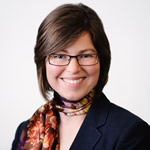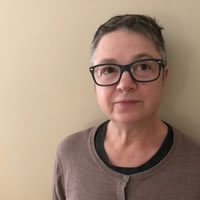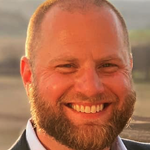Presenter
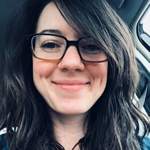 Brittany Richardson is the Web Services Librarian at the University of Tennessee at Chattanooga Library. Her primary work includes front-end web development and content coordination. She conducts assessment of web content through UX testing, stakeholder feedback, and analytics. She strives to continuously improve user experience through collaborative efforts with colleagues across the library.
Brittany Richardson is the Web Services Librarian at the University of Tennessee at Chattanooga Library. Her primary work includes front-end web development and content coordination. She conducts assessment of web content through UX testing, stakeholder feedback, and analytics. She strives to continuously improve user experience through collaborative efforts with colleagues across the library.Description
Library websites represent library services, resources, and information from a variety of library departments. How can we implement web content management strategies inclusive of these unique entities without subjecting the library’s web presence to disjointed editing or design by committee? This session will present collaborative methods that can be used by library web developers/content managers, including a framework for departmental content audits and mechanisms for obtaining internal stakeholder feedback on website redesigns. The benefits, and barriers, to implementing an increasingly open web design process will be discussed. Attendees will be encouraged to evaluate their library’s web content management processes and consider opportunities to improve the representation of all library departments.
 Rhonda Marker is Director, Shared User Services at Rutgers University Libraries. Among her responsibilities are the coordination of support and infrastructure for online information literacy and library instruction, as well as the management of digital projects and library publishing. Previous positions included Repository Collection Manager and Head of Cataloging. Rhonda has been active in ALA for more than 30 years, serving on several ALCTS committees. In that time, she was involved in the review of groups and committees that resulted in substantive changes and even the dissolution of groups that were no longer necessary. No librarians were harmed in the committee restructuring. Recently, Rhonda observed the stresses on sustaining committees and member involvement when they began meeting more often online than in person at ALA conferences.
Rhonda Marker is Director, Shared User Services at Rutgers University Libraries. Among her responsibilities are the coordination of support and infrastructure for online information literacy and library instruction, as well as the management of digital projects and library publishing. Previous positions included Repository Collection Manager and Head of Cataloging. Rhonda has been active in ALA for more than 30 years, serving on several ALCTS committees. In that time, she was involved in the review of groups and committees that resulted in substantive changes and even the dissolution of groups that were no longer necessary. No librarians were harmed in the committee restructuring. Recently, Rhonda observed the stresses on sustaining committees and member involvement when they began meeting more often online than in person at ALA conferences. Jesse A. Lambertson is the Metadata / Digital Resources Librarian at University of Chicago’s Law Library, having arrived not too long ago from Georgetown’s Law Library. He is interested in metadata, of course, but also how systems process it, make it viewable, and enable its use. He is an active member of UChicago’s LD4P Sinopia team where he catalogues and tests workflows in linked-data cataloguing. He also plays guitar and is currently studying Koine Greek.
Jesse A. Lambertson is the Metadata / Digital Resources Librarian at University of Chicago’s Law Library, having arrived not too long ago from Georgetown’s Law Library. He is interested in metadata, of course, but also how systems process it, make it viewable, and enable its use. He is an active member of UChicago’s LD4P Sinopia team where he catalogues and tests workflows in linked-data cataloguing. He also plays guitar and is currently studying Koine Greek. 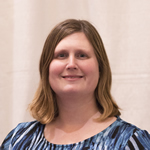 Joyce Garczynski is the Assistant University Librarian for Development & Communications at Towson University’s Albert S. Cook Library. In this role she teaches journalism students about the research process, manages her library’s social media, and raises money for her library. She obtained her Master’s Degree in Library Science from the University of Maryland, College Park in 2009 and has a Master’s in Communication from the Annenberg School at the University of Pennsylvania. She also authored a book titled, “Fundraising: How to Raise Money for Your Library Using Social Media” and co-authored “Fundraising for Academic Libraries: A Practical Guide for Librarians” which is being published by Rowman & Littlefield in 2020 .
Joyce Garczynski is the Assistant University Librarian for Development & Communications at Towson University’s Albert S. Cook Library. In this role she teaches journalism students about the research process, manages her library’s social media, and raises money for her library. She obtained her Master’s Degree in Library Science from the University of Maryland, College Park in 2009 and has a Master’s in Communication from the Annenberg School at the University of Pennsylvania. She also authored a book titled, “Fundraising: How to Raise Money for Your Library Using Social Media” and co-authored “Fundraising for Academic Libraries: A Practical Guide for Librarians” which is being published by Rowman & Littlefield in 2020 . 

